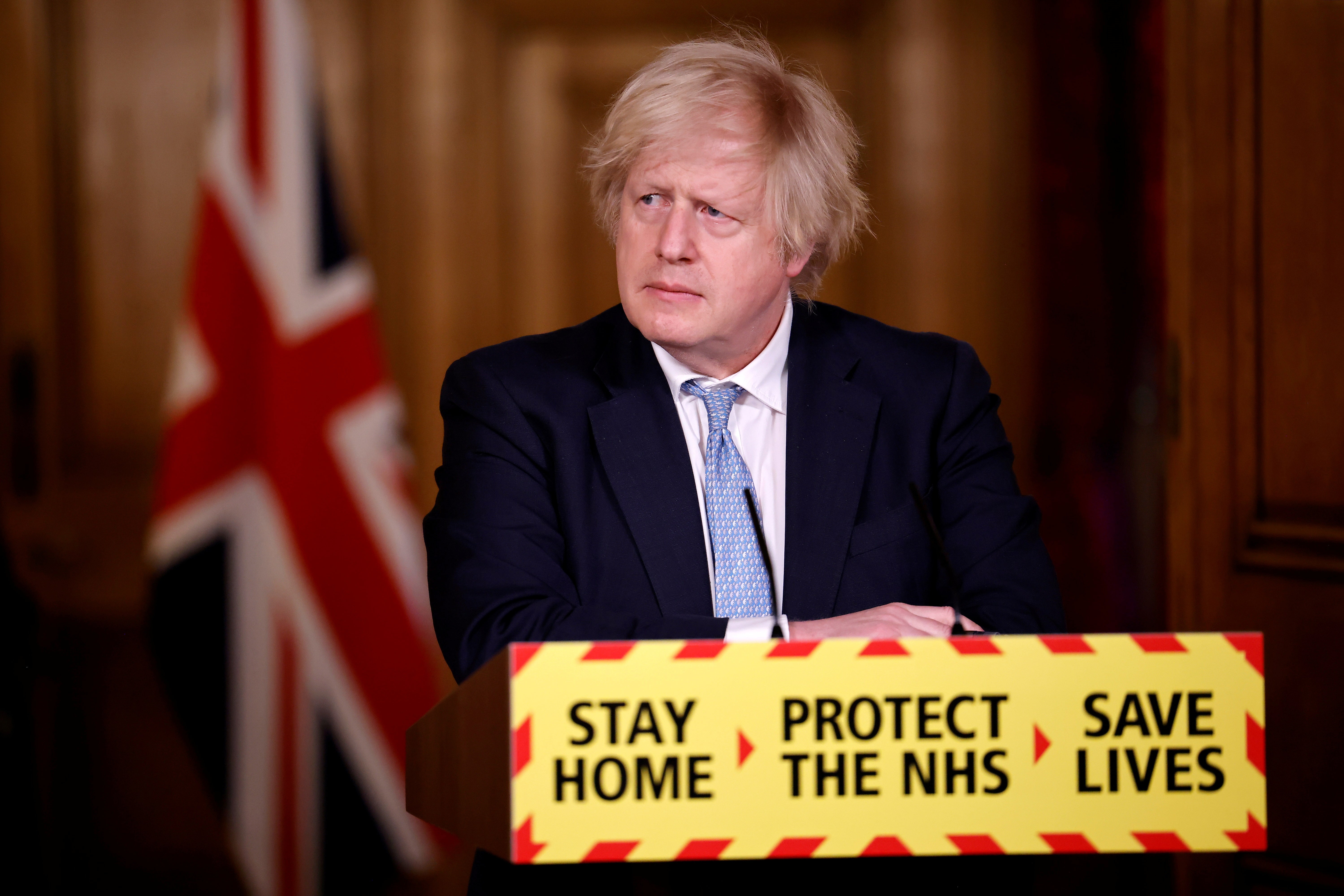Boris Johnson was portrayed as a liberal, but his draconian government is wrecking Britain
Is it too difficult to spot authoritarianism when it comes from the ideological camp that you sit with?


In her book How to Lose a Country, on how democracy is eroded by the populist right, the Turkish writer Ece Temelkuran warns that too often opponents of this creeping authoritarianism, which is challenging countries around the world, don’t fully register what is happening until it is too late.
There’s an assumption that some force or institution will kick in to halt the march – but such faith is misguided. “All these trusted, cast-iron fulcrums are eventually melted down,” she writes, “and the country is left to face the brutal power of the regime without the curbing, imaginary protection of any state institution or democratic practice.”
Increasingly, it has felt as though parts of the British press are not up to the curbing democratic practice of holding our government to account. As the Conservatives metastasised into a nativist populist project and won a parliamentary majority, there were too few alarm bells or flashing lights. Instead, a normalising media patter set up Boris Johnson as a scones-and-jam-eating, freedom-loving, socially liberal prime minister. Well, now his government has passed a shockingly authoritarian policing bill, a severe crackdown on protest that also criminalises Gypsy and traveller communities. One MP described the bill’s rules as “so loose and lazy they would make a dictator blush”. The contrast between political reality and media portrayal could hardly be starker.
Examples of the soft-focusing of our current premiership are in plentiful supply. Comment pieces in The Times alone have referred to the prime minister as “instinctively liberal”, possessing “liberal instincts” and instincts that are “liberal, unideological, broadly generous and bold in their sweep”.
Elsewhere in the press, the PM is described as having “deep-rooted liberal instincts on many things”, as a “social liberal” and a “modernising, socially liberal prime minister”. On the eve of the 2019 election, the Daily Mail’s editorial claimed Johnson was “a liberal, outward-looking, One-Nation Tory.” By then, the prime minister had prorogued parliament and threatened to break international law.
Dozens of Conservative MPs were sacked or had resigned over Brexit and the hard right turn the party had taken. In the words of one of them, Nick Boles; “Johnson truly is Britain’s Trump … He is turning the Conservative and Unionist Party into the English National Party. He must be stopped.” The alarm bell was ringing, but the right-wing media muffled it.
Read more:
Even the scandalous pandemic mismanagement of the past year is cast as a sorry product of the PM’s liberal inclinations. On Johnson’s lockdown delays, Robert Peston, political editor for ITV News, wrote: “If Boris Johnson has a political philosophy, it is that he will not restrict our liberties unless there is an overwhelming reason to do so.” Commentators echo briefings on Johnson’s reluctance to limits our freedoms. A terrible political failure costing tens of thousands of lives was thus rearranged as an unfortunate excess of liberal decency.
And so, the reality of an increasingly draconian government keeps bouncing off the surface of media analysis. This inability to appraise our politics is partly due to the deflecting force of British exceptionalism: that an authoritarian slide can only happen in other, faraway countries. A superiority complex that interprets crises elsewhere as the product of ancient hatreds, sectarianism or political immaturity afflicts a blindness to how quickly things can fall apart, anywhere, once they begin to break.
Perhaps it is also difficult to spot authoritarianism when it comes from the ideological camp that you sit with. It doesn’t help that Britain’s media and political classes often feed from the same elite pond, producing a familiarity that might cloud judgement. On top of which, Johnson’s jokey charm is cultivated to melt criticism, so that commentators are disarmed by the political equivalent of a pickup artist.
Whatever the reasons, the result is free-falling despair among progressives who warned of the political tornado that is now wrecking Britain. Our judiciary and lawyers are attacked by the government and its media cheerleaders and so, too, are probing journalists.
The government has sought to undermine the rule of law, by carving out exceptions to it, and has the Human Rights Act and liberal institutions such as the Electoral Commission in its sights. This government has banned schools from using material from “anti-capitalist” groups and claimed that teaching about white privilege is illegal. Meanwhile, the Labour leadership seems terrified of confronting – or perhaps doesn’t quite grasp – the populist-right climate we are in. All of which is simultaneously shocking and isolating because, as Temelkuran notes: “If your moral values are not politically organised, you can end up feeling quite alone.” This is why protest movements are so often galvanised at such moments, and why we are now seeing defiant campaigns and persistent legal challenges to the government’s authoritarian measures.
The power that still remains is the collective power of each other. But what also remains, still, is the unshakeable sense that there really should be more media sirens blaring.
Join our commenting forum
Join thought-provoking conversations, follow other Independent readers and see their replies
Comments
Bookmark popover
Removed from bookmarks